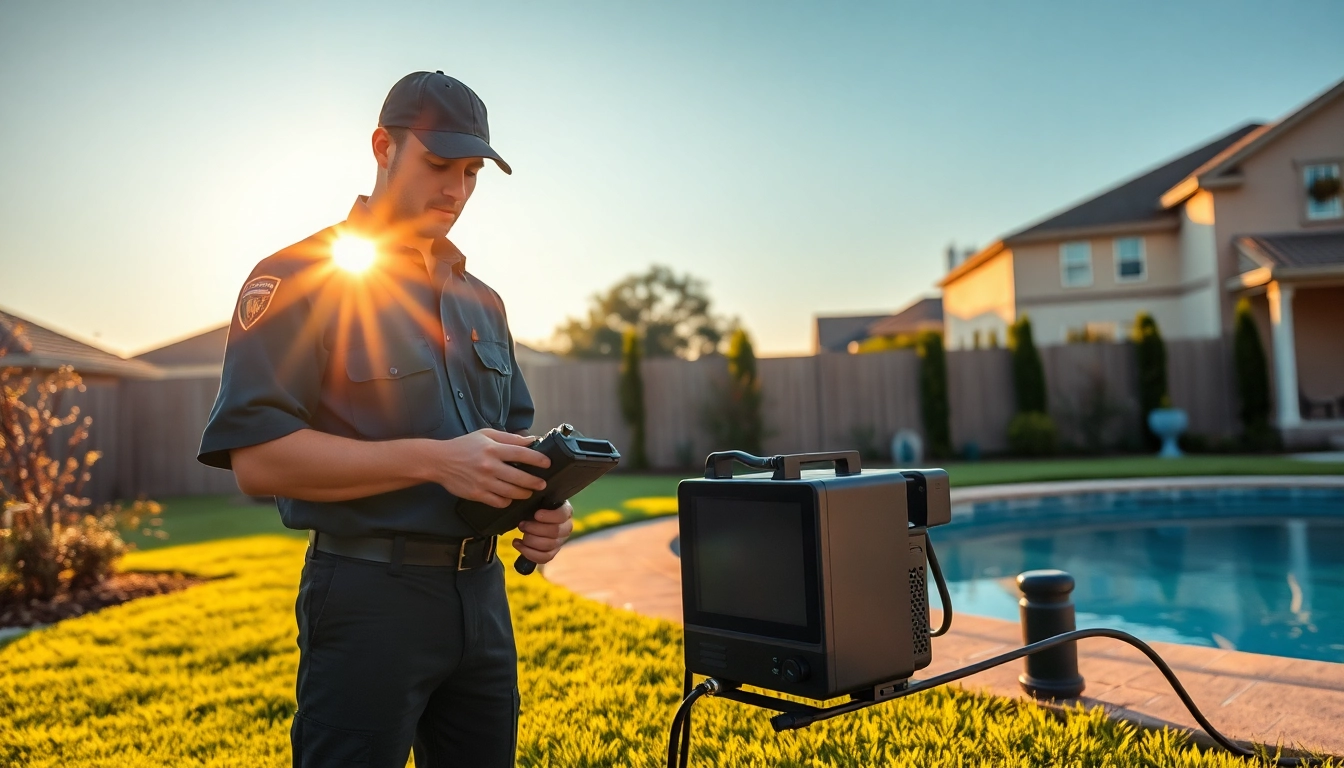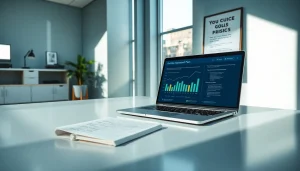Ultimate Guide to Finding a Leak Detection Specialist Near Me

Understanding Leak Detection Services
What is a Leak Detection Specialist Near Me?
A leak detection specialist near me is a trained professional who focuses on identifying and diagnosing leaks in various systems, such as plumbing and HVAC. Their expertise encompasses a wide range of methods and technologies, enabling them to pinpoint issues that may not be immediately visible. A specialist’s job often begins with an assessment of your property and may include the use of specialized equipment and techniques to detect leaks, whether they are slow or rapid, significant or minor. Understanding the value that these professionals bring can save property owners time, money, and unnecessary stress in the long run.
Importance of Leak Detection Services
Leak detection services play a critical role in maintaining property integrity and safety. A small leak can escalate into a major issue if not addressed promptly. The consequences of undetected leaks can be severe, leading to structural damage, mold growth, and other complications that not only compromise safety but also incur high repair costs. For example, water damage can weaken a building’s structure and diminish its value, while mold can pose severe health risks. Therefore, timely leak detection services are essential for early intervention that protects both investments and the well-being of occupants.
Common Types of Leaks Identified by Specialists
Leak detection specialists address various types of leaks, commonly categorized as follows:
- Water Leaks: These are the most common and can occur in plumbing, roofs, or foundations.
- Gas Leaks: Serious and potentially dangerous, gas leaks require immediate attention from qualified professionals.
- Drainage Leaks: These leaks can be challenging to identify but, if left unresolved, can disrupt drainage systems and cause property damage.
- Slab Leaks: Often unnoticed, slab leaks occur beneath the foundation and can lead to significant structural issues.
How to Choose the Right Leak Detection Specialist Near Me
Criteria for Selection
Choosing the right leak detection specialist involves careful consideration of several key criteria:
- Experience: Look for specialists with extensive experience in leak detection. The more problems they’ve encountered, the more capable they will be at diagnosing yours.
- Qualifications: Ensure the specialist holds the necessary certifications and training relevant to leak detection.
- Insurance: A qualified technician should have liability insurance to protect you in case of accidental damage during the inspection.
- Reviews and Reputation: Check online reviews and testimonials to gauge previous clients’ experiences.
Questions to Ask a Leak Detection Specialist
Before hiring a leak detection specialist, consider asking these pertinent questions:
- What techniques and tools do you use for leak detection?
- Can you provide references or testimonials from previous clients?
- What is the expected timeframe to complete the leak detection process?
- How much will your services cost, and do you provide detailed estimates?
Evaluating Credentials and Experience
Evaluating the credentials and experience of a potential leak detection specialist is vital. Checking for membership in professional organizations may indicate a commitment to the field. Furthermore, inquire about any specialized training or certifications, such as thermography or acoustic leak detection. The more knowledge a technician has about various types of leaks and methods of detection, the better equipped they will be to handle your situation effectively.
Tools and Techniques Used by Leak Detection Specialists
Modern Equipment for Leak Detection
Leak detection specialists utilize a variety of advanced tools and technologies, each designed to enhance accuracy and efficiency:
- Acoustic Listening Devices: These devices amplify the sound of leaks, allowing specialists to locate the source of a leak through walls or floors.
- Infrared Cameras: These cameras detect temperature variations that may indicate moisture presence, facilitating non-invasive inspections.
- Moisture Meters: Used to measure the moisture content of various materials, these meters are essential for identifying hidden or ongoing leaks.
- Video Inspection Equipment: This technology allows technicians to visually inspect pipes and drains, identifying blockages, cracks, or leaks.
Advanced Techniques Explained
In addition to equipment, specialists employ various techniques to ensure precise leak detection:
- Smoke Testing: A technique used to identify sewer leaks, where a non-toxic smoke is introduced into the system, revealing leaks through visible smoke escape points.
- Pressure Testing: This method involves pressurizing a plumbing system to identify leaks by monitoring pressure drops.
- Tracer Gas Detection: In this method, a safe gas is introduced to the plumbing system, and detectors are used to locate gas that escapes from leaks.
How These Tools Ensure Precision
Using modern tools ensures precision in leak detection. For example, infrared cameras can unveil hidden leaks beneath surfaces without invasive digging, preserving the integrity of property structures. Acoustic listening devices enable specialists to determine both the precise location and severity of a leak based on sound levels. Collectively, these tools enhance the accuracy of diagnoses and provide property owners with peace of mind.
Cost Considerations of Leak Detection Services
Average Pricing for Services
The cost of leak detection services can vary widely based on several factors, including region, type of leak, and the techniques employed. On average, homeowners may expect to pay between $150 and $500 for standard leak detection services. More complex situations, particularly those involving extensive plumbing systems, could exceed this range.
Factors Affecting the Cost
Several factors influence leak detection costs:
- Type of Leak: Water leaks are generally less expensive to detect than gas leaks due to the urgency and potential risk associated with gas.
- Location: Urban versus rural areas often display significant differences in pricing due to demand and competition.
- Extent of Damage: If previous damages require additional inspections or repairs, costs will naturally increase.
Transparency in Pricing and Services
Choose a leak detection service that provides transparent pricing structures. Reputable specialists will offer clear estimates and break down the services included. Avoid companies that employ ambiguous pricing models, as this can lead to unexpected charges. Always request a detailed estimate before services are rendered to ensure alignment with your budget.
Preventative Measures to Avoid Leaks
Best Practices for Homeowners
Preventing leaks begins with proactive measures. Homeowners should consider engaging in the following best practices:
- Inspections: Regular inspections of plumbing systems, including checking joints, valves, and connections, can help identify potential issues before they become serious.
- Water Pressure Monitoring: High water pressure can strain plumbing systems and lead to leaks; use pressure regulators if required.
- Temperature Regulation: Maintaining proper temperatures in pipes during extreme weather can reduce the risk of freezing and bursting.
Regular Maintenance and Inspections
Ensure that regular maintenance and thorough inspections are part of the home care routine. Hiring a leak detection specialist annually can help identify hidden problems before they escalate. Scheduling professional plumbing inspections every few years can also keep your systems in optimal condition.
Signs You May Need a Leak Detection Specialist Near Me
Some common indicators that you may need to call a leak detection specialist include:
- Unexplained water bills that have suddenly increased without changes in water usage.
- Wet spots, stains, or mold growth on walls or ceilings.
- Cracks in foundations or walls that weren’t present before.
- Sounds of running water when no taps are in use.





